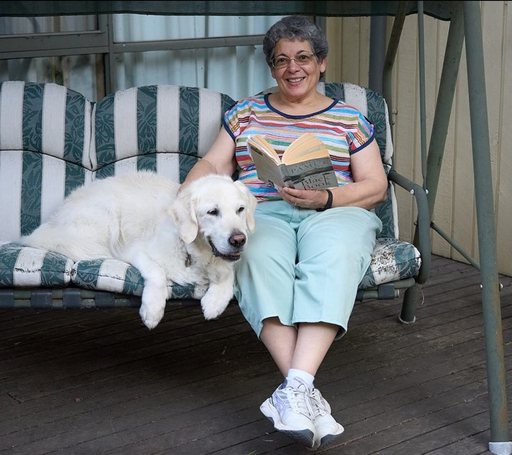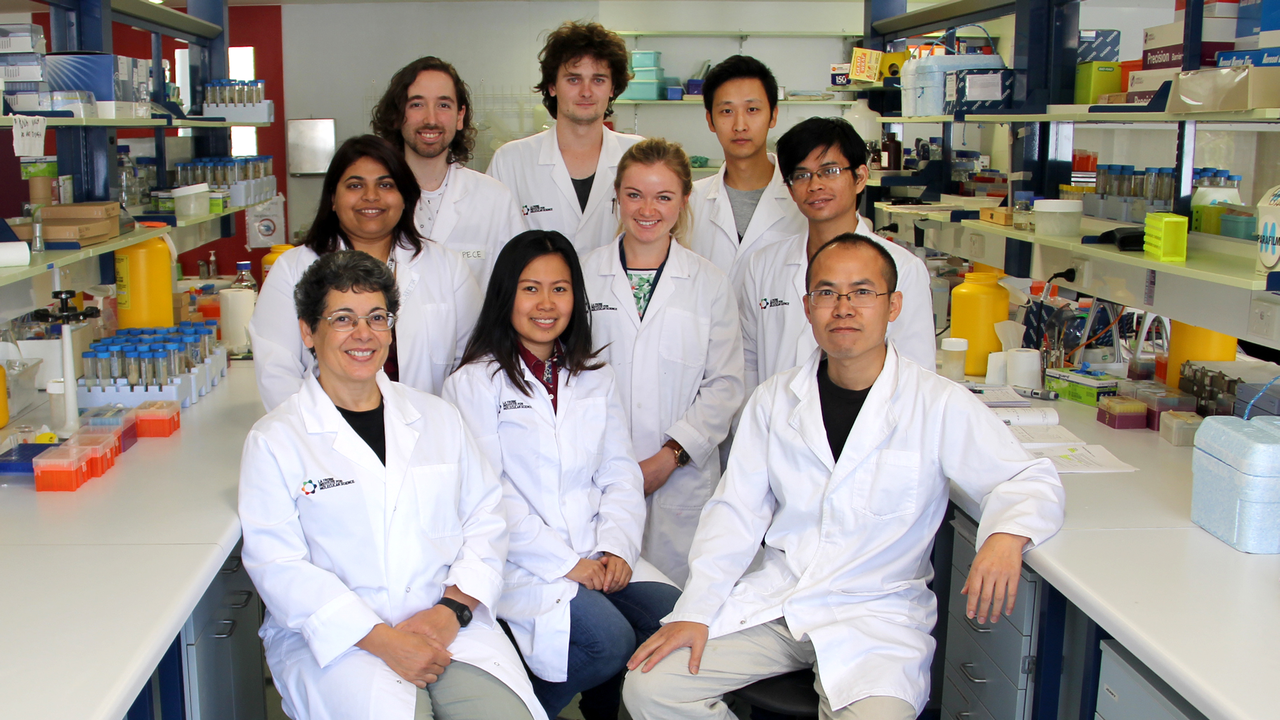When would it have been discovered that it is platelet behaviour that triggers an auto immune disease if Jacquie had just accepted that her papers hadn’t come through and gone back from Australia to Mauritius?
If it hadn’t been for the war in Zimbabwe I would have studied medicine instead of science. I arrived in Australia and found my papers had been held up in the Australian Embassy in Zimbabwe, which handled visa requests from Mauritius at the time, and so I missed the deadline for a position in medicine.
Rather than go home, Jacquie applied to Monash University, a learning environment that made it evident she should be pursuing science.
I remember looking under the microscope with my grandfather as a child. I am from a long line of scientists, my father was an entomologist and my grandfather a plant pathologist. But the culture in Mauritius at that time was that a career as a research scientist wasn’t considered suitable for young women, so I was encouraged to go into medicine.
Gaining confidence under the tutelage of the professors at Monash, Jacquie made the decision to pursue science research instead of medicine not to pursue medicine and never regretted it.
You know when you are in the right place.
Moving into neuroscience
The accent on research is to have a perspective on a new treatment or understanding of a particular disease. Jacquie was interested in neuroscience and on achieving a PhD at Monash was accepted for neuroscience at Melbourne University. While investigating brain development she became interested in Multiple Sclerosis (MS) because she had a classmate with the disease and witnessed her fast deterioration, and she also noticed the disease was being diagnosed in people younger and younger, even infants from 2 to 3 years old.
I thought MS affects young people, subjecting them to a life of physical and mental deterioration. So, I went to the UK to an MS research laboratory. Returning to Australia I chose La Trobe University because the laboratory I could go into had a focus on understanding, not just the basics of science, but the potential applications to find new treatments. La Trobe provides the environment to allow a scientist to find new avenues for treatment. I came here and have been here ever since.
Crossing the line
Jacquie is very meticulous in recording and documenting her observations and the images she takes of cell behaviour. Both Professors Georges Grau (Professor of Vascular Immunology Pathology) and David Brown (Professor, Director of Immunopathology) made comment on this when endorsing the funding call for the Platelet project to be led by Jacquie if funding becomes available.
It was when comparing the imaging she noticed platelets in certain regions but not in others.
We asked ourselves if we were doing something wrong in our tissue preparation because there wasn’t any literature reporting platelets moving out of the bloodstream. There was a paper from 1935 by Dr Putnam but it had been forgotten, and a prominent neuropathologist released papers on it in the 60’s, but they were never followed up.
It was thought the only role of platelets was to clot blood. But what we have learned is that their job extends to defence. Most pathogens such as bacteria, will enter through the blood, and platelets combat these invasions and repair the blood vessels at such a rate so as to block this invasion. We always knew they provide protection but what we also discovered was that when they cross the line into the tissue themselves, they cause destruction. Destruction that can trigger an autoimmune disease.
In autoimmunity the immune system regards tissue in the same way as a foreign organism, so the platelets do what they do to a foreign organism. They destroy the nerves. We realised they have a key and early role in autoimmune diseases and that we should look more and more into the potential of a drug that controls platelet behaviour.
The game changer
That’s when Jacquie’s research shifted from a focus on MS as one of the autoimmune diseases, to the leading player for all autoimmune diseases. Jacquie is quick to point out that:
We can’t prevent an auto immune disease because we still do not understand how our defence system can be misinformed and ‘see’ our own cells as pathogens, or bacteria entering the bloodstream. In the case of pathogens, it’s the platelet’s job to fight and destroy them, which they mostly do. Under autoimmune conditions, platelets become over enthusiastic and cross the line whereby the tissue becomes an unknown body which they interpret as being something they need to destroy. That’s when a platelet targeting drug would limit the damage and slow down the progression of the disease.
This project is about identifying a molecule that can control the behaviour of platelets that have crossed the line and thereby provide a treatment for an autoimmune disease sufferer that will control the out of control platelets and slow down the progression of the disease. The impact of autoimmune diseases is huge, and the cost of treatment is astronomical.
The table below shows the estimated number of people affected by some of the most common autoimmune diseases and the annual cost of treatment globally.
| Autoimmune disease | Number of people affected | Cost of treatment (USD) |
|---|---|---|
| Multiple Sclerosis | 2.9 million | $172 billion |
| Rheumatoid Arthritis | 19.2 million | $131 billion |
| Lupus Erythematosus | 3.5 million | $116 billion |
| Celiac Disease | 112 million | $56 billion |
| Type 1 Diabetes | 8 million | $24 billion |
Society doesn’t notice researchers because what they do happens in the background, and much of what they do, we don’t understand. Jacquie said:
We are detectives foraging in the dark. Where would we be without antibiotics, vaccines, and the treatments and cures for diseases?
But solutions to problems such as these cannot be found without funding. Scientific research does cost money, but we pay with our lives the cost of not doing it.

